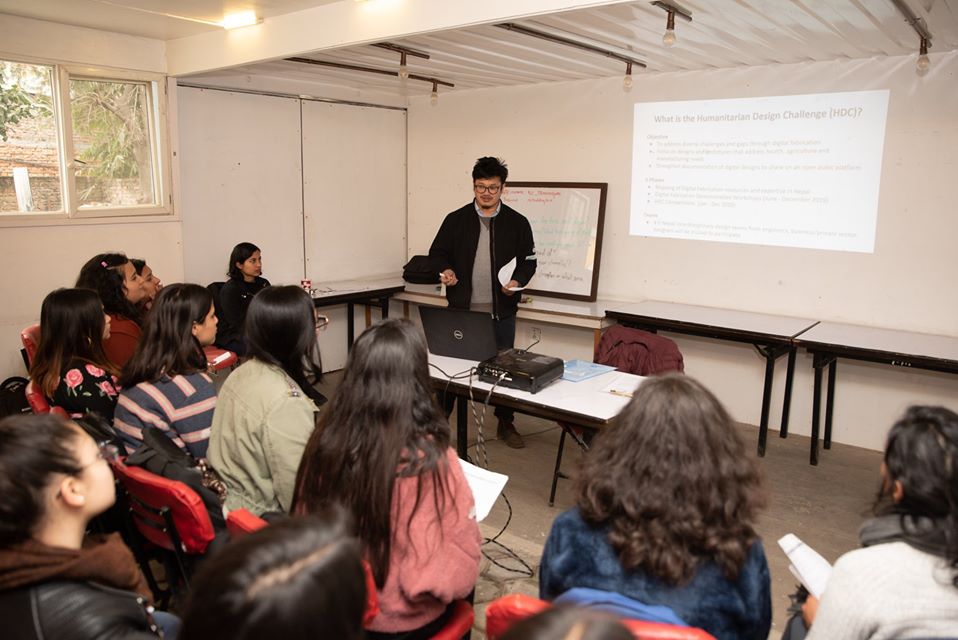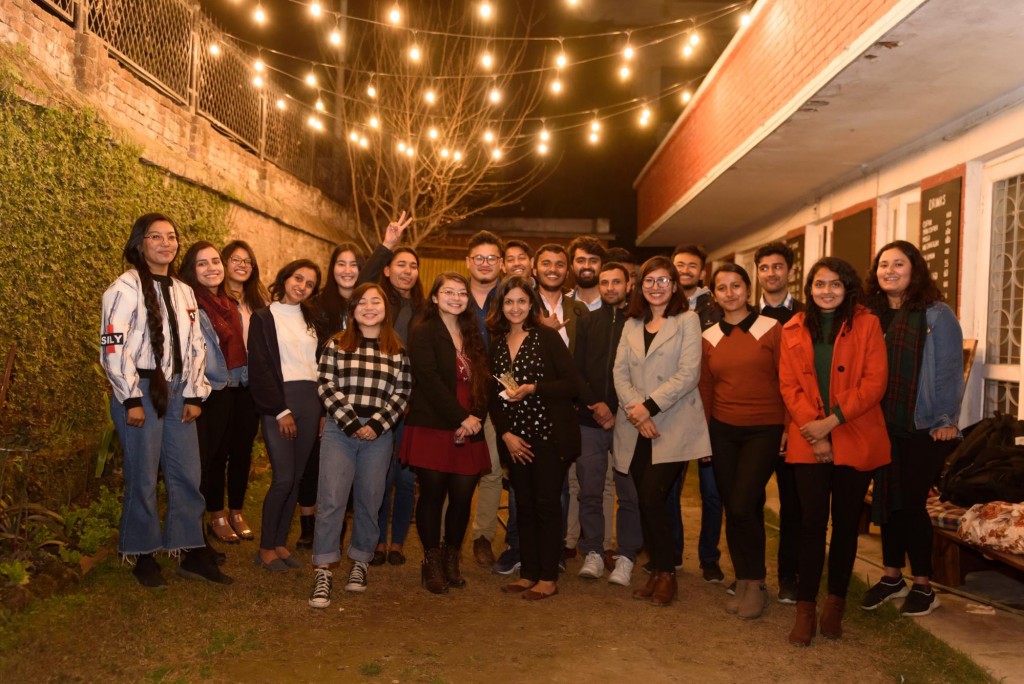The month of February was a month for ‘Innovation with a cause’. Nepal Communitere in partnership with Field Ready successfully wrapped up the first-ever Humanitarian Design Challenge (HDC) where students from different disciplines formed 4 multidisciplinary teams to prepare prototypes to combat real-life challenges! 20 avid learners from different colleges and universities across Kathmandu participated in this challenge where they were trained and guided to apply skills and knowledge of different digital manufacturing tools such as 3D printing, CNC, Laser cutting and other powerful 3D design software.

The 2-week long design challenge allowed the teams to go through a simulated design activity with a focus on Human-Centred Design research, documentation and access to open-source platforms such as Careables, Field Ready, Thingiverse, GrabCAD and others. The participant teams identified a product on one of these open-source platforms and adapted and iterated for the Nepali market. They then designed a new prototype incorporating findings from their design-thinking interviews.

Pallab Shrestha, Program Officer of FabLab and Pradita Pradhan, Program Coordinator of Field Ready were the simulated directors of “P&P Pvt Ltd” who each team was consulting for. Each team was required to submit a proposed budget and were provided funds to implement the assignment and provided deliverables as professional consultants. The learnings were tremendous and invaluable! The entire project was executed after organizing 11 demo workshops from June to December 2019, out of which 7 demo workshops were conducted outside the valley in Chitwan, Dharan, Biratnagar, Nepalgunj, Butwal, Dhangadi and Pokhara with more than 500 participants.
The design challenge was conducted through three sessions: the Design Sprint session which introduced the concept of Digital Fabrication, 3D Printing and Human-Centered Design to the teams by involving them in different group activities; Data analysis session where the students synthesized their interview data and incorporated it into key findings for their iterations; followed by the final session where the teams presented their prototypes to the advisory board of P&P Pvt. Ltd, a company working on assistive devices as per the simulation of the Design Sprint.

Total of four teams comprising 5 members in each took part in the challenge: Team Lilac developed a ‘Rowing Mechanism in the Wheelchair’ with a vision to develop and redesign the existing model of hand drive in the wheelchair that requires more effort to push; Team IG Designers prototyped a ‘Cup Holder’ which can help differently-abled people to drink beverages independently; Team Cherry Co. came up with a ‘Sock Assist Device’ which can help anyone with mobility problems to put on and take off socks, and finally, Team Yantrakala built a ‘Gilfo Writing tool’ which can help children with cerebral palsy to use basic tools like crayons and pencils with ease. Shristi Poudel, one of the participants shared her experience on how the HDC project not only enhanced her team spirit but also helped to build empathetic thinking before launching any product into the market.
Originally published here by Nepal Communitere in collaboration with Field Ready.

